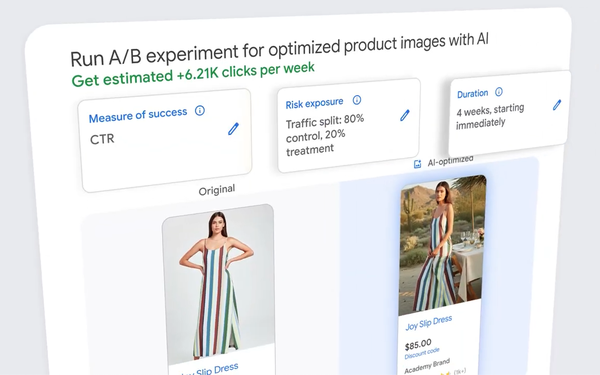
The best ads are answers to questions
that consumers have about products and services. That's how Vidhya Srinivasan, vice president and general manager of ads and commerce, described Google Ads in a blog post celebrating the 25th
anniversary today of its Ads platform, despite ongoing struggles around monopoly lawsuits.
Google launched AdWords in 2000. Then in 2018, the company renamed AdWords as Google Ads.
Technology has dramatically changed throughout the years, from the early days of keyword search to the shift to mobile and the first video ads on YouTube, to Google Analytics and AI-powered
advertising campaigns.
Google Ads still dominates advertising across the industry, even as generative artificial intelligence takes hold and moves advertising forward.
"We are
not slowing down," Srinivasan wrote in a blog post. "Generative AI is transforming digital marketing, and I am so proud to see us leading the way with agentic capabilities, tools that automate and
optimize campaigns and cutting-edge creative generation."
advertisement
advertisement
These new features give businesses the ability to scale creativity, and help them reach new audiences to connect with people
worldwide, Srinivasan wrote.
Vivek Dave, founder of mobile app development company RV AppStudios, in the blog's video said "90% of our revenue comes from ads," but
he did not say whether Google Ads generated all the revenue.
But not all has been rosy for Google through the years. Yelp has an ongoing antitrust lawsuit with Google. It alleges that
Google illegally uses its dominance in general search to unfairly promote its own local search products at the expense of competitors. The case is still proceeding, with a federal judge recently
allowing key claims to move forward.
Yelp in 2024 brought an action against Google "under Section 2 of the Sherman Act, 15 U.S.C. § 2, and California’s Unfair Competition Law to
safeguard competition, protect consumer choice, recover damages, and prevent Google LLC from engaging in various anticompetitive practices designed to monopolize the markets for local search services
and local search advertising," according to the filing.
“This latest ruling from Judge van Keulen is a positive step towards holding Google accountable for its illegal exclusionary
conduct in the local search and local search ad markets," Yelp General Counsel Aaron Schur wrote in an email to MediaPost. "We look forward to continuing to present
our case and detailing how Google’s illegal monopoly harms consumers and innovation.”
In an email to MediaPost, Yelp explained how an amended complaint in paragraph 43
adds "new details about how Google’s use of features like OneBox, highlighting its own offerings over its competitors, has resulted in an increasing volume of searches, including those with
local search intent, where users do not leave Google’s SERP at all (called zero-click searches)."
Then in paragraphs 129 through 141, examples of Google’s anticompetitive and
exclusionary changes to its search products are provided.
Being a dominant player in an industry is not easy. Google faces significant struggles with Google Ads, primarily centered on
antitrust concerns and issues around trust. It has prompted regulatory scrutiny and created dissatisfaction among some advertisers and executives across the ad-tech landscape, and faced a
number of issues around price manipulation, fake listings, and brand safety.
With agentic ad creation and serving, it will be interesting to see what happens next.